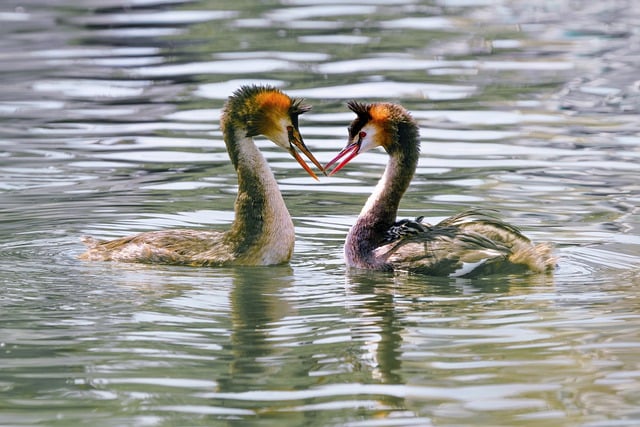
The Science of Love in Animals
Love is often considered a human emotion, but animals also exhibit behaviors that resemble affection, bonding, and even romance. From lifelong pairings to parental care and social bonding, many species demonstrate complex emotions and deep connections. Scientists have studied these behaviors and uncovered fascinating insights into the science of love in the animal kingdom.
1. The Biology of Love in Animals
Love, attachment, and bonding in animals are primarily driven by hormones and neurological processes. The key chemicals involved in animal bonding include:
- Oxytocin: Often called the “love hormone,” oxytocin plays a crucial role in pair bonding, maternal care, and social interactions.
- Dopamine: This neurotransmitter is linked to pleasure and reward, reinforcing affectionate behaviors.
- Vasopressin: Associated with long-term attachment and territorial behaviors in monogamous species.
2. Monogamous Relationships in the Animal Kingdom
Some animals form lifelong partnerships, displaying loyalty and companionship similar to human relationships. Examples of monogamous species include:
- Swans: These birds are known for their lifelong commitment to a single mate, reinforcing their bond through synchronized movements and vocalizations.
- Wolves: Wolf packs are built on strong family ties, with alpha pairs leading and nurturing their offspring together.
- Prairie Voles: Unlike many rodents, prairie voles form long-term pair bonds and show strong attachment behaviors.
3. Parental Love and Care
Parental bonding is a critical form of love in animals, ensuring the survival of offspring. Some examples include:
- Elephants: Female elephants live in close-knit family groups, where they help raise and protect each other’s young.
- Penguins: Emperor penguins take turns incubating their eggs and caring for their chicks in harsh Antarctic conditions.
- Orangutans: Mother orangutans nurture their young for up to eight years, teaching them essential survival skills.
4. Social Bonds Beyond Mating
Love in animals extends beyond mating and parenting. Many species form deep social bonds within their groups:
- Dolphins: These intelligent mammals form strong friendships, often helping injured or sick members of their pod.
- Bonobos: Known for their affectionate nature, bonobos use social bonding and touch to maintain peace and unity.
- Dogs and Humans: Dogs exhibit unconditional love for their human companions, showing attachment, empathy, and loyalty.
5. Love and Mourning in Animals
Some animals express grief and sorrow when they lose a loved one, showing that love in the animal world is not just about reproduction:
- Elephants: They have been observed mourning their dead, visiting the bones of deceased relatives.
- Crows: These intelligent birds hold “funeral-like” gatherings for fallen members of their flock.
- Whales: Certain whale species stay close to deceased pod members for extended periods, displaying clear signs of grief.
Image by homecare119 from Pixabay
Image by Piet van de Wiel from Pixabay